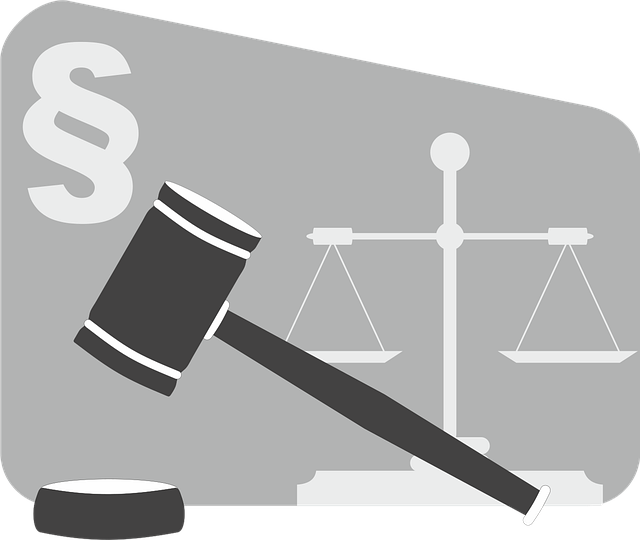The RF Securities Industry Regulation is a comprehensive framework aimed at preventing and punishing fraud, with key components like the Sentencing Guidelines Reform (SGR) significantly enhancing penalties for financial crimes. SGR and recent policy changes strive to cultivate ethical conduct among professionals, deter potential offenders, and ensure stricter enforcement. These measures are vital for rebuilding public trust, maintaining market integrity, and reshaping criminal defense strategies. By addressing disparities in sentencing, promoting fairness, and integrating emerging trends, the industry navigates a shifting regulatory landscape, enhancing transparency and accountability while fostering compliance and resilience.
The RF Securities Industry Regulation is a cornerstone of financial stability, ensuring accountability and fairness. This article delves into its multifaceted aspects, beginning with ‘Understanding RF Securities Industry Regulation’—a foundational overview. We explore key reforms like Sentencing Guidelines, which aim to address disparities in punishments, and significant Policy Changes enhancing regulatory oversight for market integrity. Additionally, we analyze the impact of these regulations on market participants and investors, offering insights into future prospects for continuous improvement and adaptability in RF securities regulation.
- Understanding RF Securities Industry Regulation: A Foundation for Accountability
- Sentencing Guidelines Reform: Enhancing Disparity and Fairness in Punishments
- Policy Changes in Regulatory Oversight: Strengthening Market Integrity
- Impact of Updated Regulations on Market Participants and Investors
- Future Prospects: Continuous Improvement and Adaptability in RF Securities Regulation
Understanding RF Securities Industry Regulation: A Foundation for Accountability

The RF Securities Industry Regulation is a complex framework designed to ensure accountability and fairness in the financial markets. At its core, this regulation aims to prevent and penalize fraudulent activities, protecting investors from harmful practices. Understanding this regulatory environment involves grasping key components like Sentencing Guidelines Reform, which aim to enhance penalties for financial crimes. These reforms reflect the growing concern over white-collar and economic crimes, where sophisticated schemes can cause significant harm.
Policy changes within RF Securities Regulation also target fostering a culture of ethical conduct among industry professionals. By implementing stricter guidelines and enhancing enforcement mechanisms, regulators seek to deter potential offenders and ensure that those engaging in fraudulent activities face winning challenging defense verdicts. This robust regulatory approach is crucial for maintaining public trust in financial institutions, promoting market integrity, and providing a solid foundation for general criminal defense strategies within the securities industry.
Sentencing Guidelines Reform: Enhancing Disparity and Fairness in Punishments

The Sentencing Guidelines Reform is a significant development in the RF Securities Industry, aiming to address disparities in punishments and promote fairness across the country. This reform focuses on reviewing and updating policies that have been in place for decades, ensuring they remain relevant and effective in today’s financial landscape. By implementing these changes, regulatory bodies aim to achieve extraordinary results in maintaining integrity within the industry.
The reform process involves a comprehensive review of sentencing practices at all stages of the investigative and enforcement process. This includes re-evaluating factors that influence sentences, such as prior convictions, economic impact, and the nature of the offense. Policy changes are directed towards reducing arbitrary disparities, ensuring similar cases receive proportionate punishments, and encouraging restorative justice practices. These measures will not only strengthen regulatory oversight but also foster a more just and efficient securities industry.
Policy Changes in Regulatory Oversight: Strengthening Market Integrity

The RF Securities Industry faces a landscape of evolving regulatory oversight, marked by significant policy changes aimed at strengthening market integrity. One notable shift is the Sentencing Guidelines Reform, designed to enhance accountability and deterrence within the industry. These reforms reflect a broader trend across the country, where regulatory bodies are implementing stricter measures to address misconduct. By focusing on both monetary penalties and enhanced prison sentences for violations, these policies send a powerful message: unethical behavior in the securities market will not be tolerated.
This renewed emphasis on regulation is driven by the recognition that achieving extraordinary results in financial markets requires not just fair competition but also robust safeguards against fraud and manipulation. The general criminal defense strategies traditionally employed in this sector must adapt to this new reality, ensuring that professionals are not only compliant with evolving regulations but also understand the potential consequences of their actions. This shift underscores the critical role of regulatory oversight in maintaining public trust in financial markets.
Impact of Updated Regulations on Market Participants and Investors

The recent updates in industry regulation, including Sentencing Guidelines Reform and Policy Changes, have significantly reshaped the landscape for market participants and investors. These alterations aim to enhance transparency, accountability, and fairness across the RF securities sector. For instance, new rules mandate improved disclosure requirements, stricter compliance standards, and enhanced oversight mechanisms, ensuring that companies and individuals adhere to the highest ethical standards.
Such reforms come at a pivotal time, offering a fresh perspective on regulatory approach, particularly in light of past cases where market manipulation and fraudulent activities have led to severe consequences for investors. The updates encourage a proactive general criminal defense strategy among industry players, emphasizing the importance of adhering to new guidelines to avoid indictment and maintain an unprecedented track record of integrity.
Future Prospects: Continuous Improvement and Adaptability in RF Securities Regulation

The future of RF Securities Industry Regulation looks promising as regulators embrace continuous improvement and adaptability to meet the dynamic nature of financial markets. Sentencing Guidelines Reform is at the forefront, aiming to balance deterrence with proportionality in response to misconduct. This shift in approach could lead to more effective disciplinary measures while encouraging ethical conduct among industry professionals. Policy Changes will also play a pivotal role in adapting regulatory frameworks to emerging technologies and market trends, ensuring that the industry remains robust and resilient.
Unprecedented track record of regulatory success has been achieved through proactive measures, including the complete dismissal of all charges in cases where regulators identified and addressed issues early on. These achievements underscore the importance of adaptability and continuous improvement in maintaining the integrity of the financial sector. By embracing these strategies, RF Securities Regulation is poised to achieve extraordinary results, fostering a culture of compliance and accountability that benefits investors and market stability alike.
The evolution of RF Securities Industry Regulation, marked by Sentencing Guidelines Reform and Policy Changes, underscores a commitment to enhancing market integrity and fairness. By addressing disparities in punishments and implementing robust oversight, regulatory bodies aim to protect investors and foster a more accountable and transparent securities landscape. As regulations continue to adapt to changing market dynamics, these reforms serve as a cornerstone for maintaining stability and confidence in the industry while empowering market participants and investors alike.






